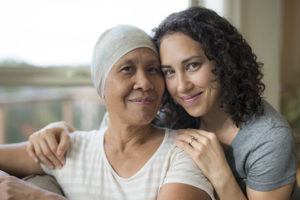September 16, 2019
 Every year since 1999, we’ve achieved an increasing decline in cancer-related deaths, a reassuring trend which is poised to carry on as scientists learn more and more info on what causes cancer and consequently are able to develop new and better treatment options. Yet, cancer is still one of the leading causes of death in the US, second only to heart disease – making it critical to continue to press forward with determination to caring for cancer and locating a cure.
Every year since 1999, we’ve achieved an increasing decline in cancer-related deaths, a reassuring trend which is poised to carry on as scientists learn more and more info on what causes cancer and consequently are able to develop new and better treatment options. Yet, cancer is still one of the leading causes of death in the US, second only to heart disease – making it critical to continue to press forward with determination to caring for cancer and locating a cure.
Here is what we have observed thus far:
- Diet makes a difference. While a meal plan abundant in antioxidants can help minimize cell damage (and protect against cancer), a recently available research study revealed that in some cases, cancers utilize a nutrient-rich diet, resulting in hastened metastasis. As a result, the recommendation is to abstain from antioxidant supplements unless the doctor prescribes them. Get your antioxidants from fruits, veggies, and beans instead, because the additional molecules in the whole food have an impact. Furthermore, a link is suspected between sugary drinks (soda, artificially sweetened drinks, and even 100% fruit juice) and a heightened likelihood of cancer.
- Cancer may develop before birth. For instance, acute lymphoblastic leukemia (ALL) is believed to stem from a mutation that develops in utero, triggered when infection is first introduced. The recommendation is to make certain children are exposed to germs in the first year of life, to teach the immune system to deal with pathogens and avoid the secondary mutation that creates leukemia.
- The emphasis is moving toward immunotherapy. People who’ve experienced the ravages of chemotherapy’s side effects will be relieved at the most recent treatment advances, which emphasize immunotherapy that allows the targeting of just the cancer cells themselves. A clinical trial of a “cancer vaccine,” in combination with a light dose of radiation, has recently shown promising results.
- The financial impact could be tremendous. A substantial study of 9.5 million cancer patients revealed the average financial loss of over $92,000, as 42% of these patients were required to exhaust their life savings to pay for the price of just the first two years of treatment. Authors of the research study share, “As large financial burdens have been found to adversely affect access to care and outcomes, the active development of approaches to mitigate these effects among already vulnerable groups remains of key importance.”
If you or a loved one is facing the challenges of cancer, let us help. At Continuum, our knowledgeable in-home care team can prepare healthy meals, pick up medications, provide accompaniment to appointments, and give the emotional support necessary when caring for cancer. Reach out to us at (314) 863-9912 or (636) 861-3336 for more information about the best providers of home healthcare in St. Louis and the surrounding area.
